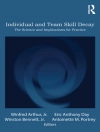Does toxic pollution cause attention-deficit/hyperactivity disorder (ADHD)? What about screen use? Are alternative treatments worth exploring? Can dietary changes help? From leading ADHD researcher Joel T. Nigg, this book presents exciting treatment advances grounded in the new science of epigenetics–how genes and the environment interact. Distinguishing unsupported, even dangerous, approaches from bona fide breakthroughs, Dr. Nigg describes specific lifestyle changes that have been proven to support the developing brain. Vivid stories illustrate ways to maximize the positive effects of healthy nutrition, exercise, and sleep, and minimize the damage from stress and other known risk factors. The book helps you figure out which options hold the most promise for improving your child’s symptoms and overall well-being–and gives you step-by-step suggestions for integrating them into daily life.
İçerik tablosu
Introduction 1. A New Understanding of ADHD 2. Epigenetics: The End of the Nature-versus-Nurture Debate 3. Food and ADHD: Old Controversies and New Clarity 4. Exercise, Sleep, and ADHD: New Insights on Brain Growth 5. Technology and ADHD: Latest Findings on the Peril and the Promise 6. Environmental Chemicals and ADHD: Sorting Alarm from Prudent Caution 7. Adversity, Stress, Trauma, and ADHD: Finding Sanctuary 8. Getting Professional Help: Traditional and Alternative Treatments for ADHD 9. Tying It All Together Resources References
Yazar hakkında
Joel T. Nigg, Ph D, is Professor of Psychiatry and Behavioral Neuroscience at Oregon Health & Science University. A leading expert on ADHD, he has conducted scientific research and worked with children and their families on diagnostic assessment and treatment planning since the 1990s.












